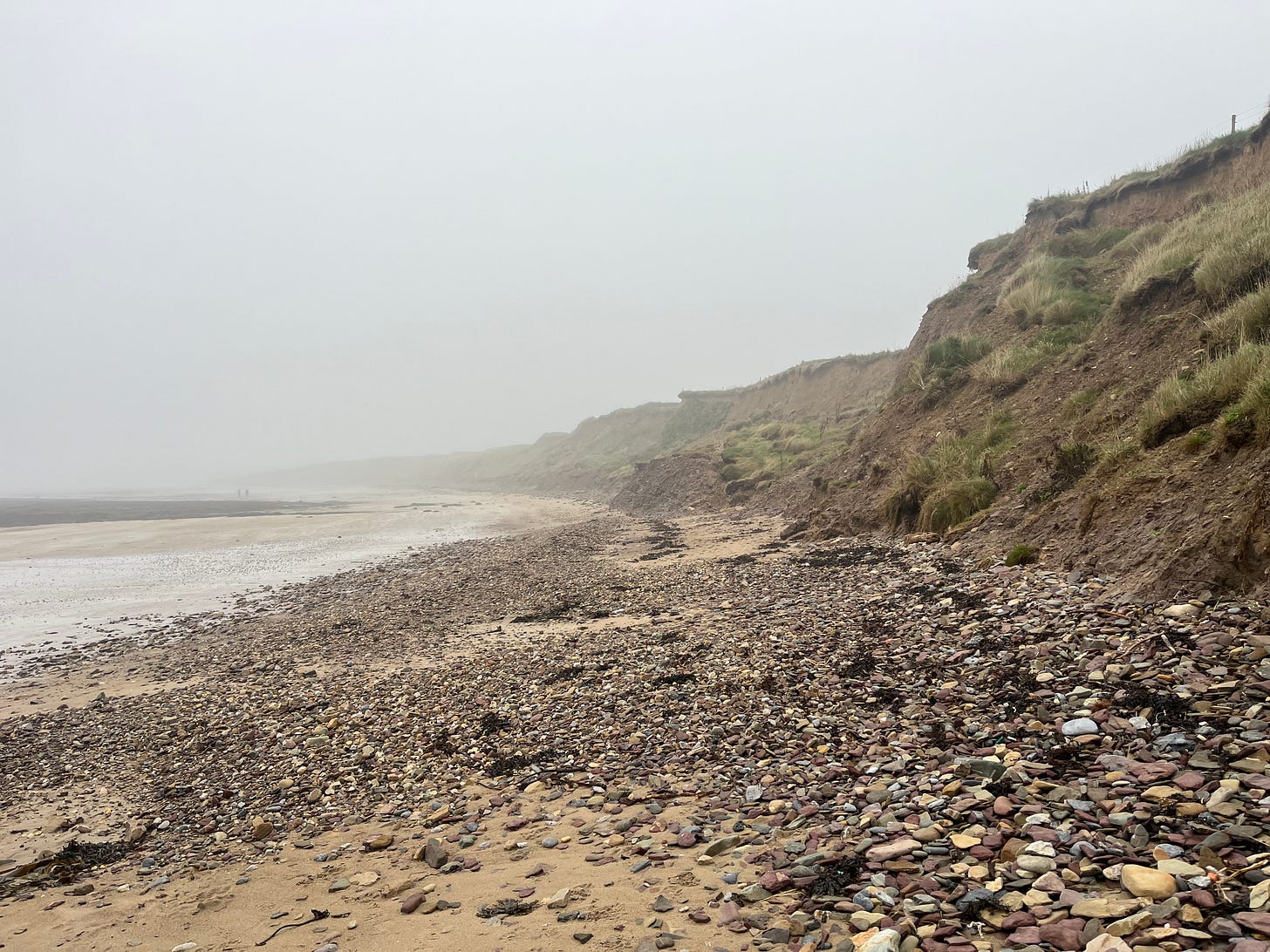"How are you feeling?”
It was the day of the presidential election in America, and I didn’t even have to read the whole text message to know what that meant. It was still early even in Ireland, so surely, I thought, they couldn’t have called it yet. Yet there it was, apparently the outcome so clear decisive that by noon on the East Coast, the headline was already burning a hole in my inbox: Trump had been elected president.
I felt sick, my stomach churning, as I spiraled into the past. Suddenly it was eight years ago all over again, when I wanted so badly to believe things were going to be different, but they kept winning.
Last time proved that as racist as the nation was, it was even more misogynist; Obama had won, but the nation would rather elect an incompetent hatemonger, it seemed, than a woman. As someone in a female body, identifying that way then, this cut deeply. In the time since, I have realized I am trans, and waves of vicious legislation targeting children who want to transition and policing private rights and public space ripple across the nation. The threats that might be empowered by this administration are existential. There comes a time when you can’t go home anymore, and I had already gotten there on my personal journey, yet now living elsewhere has become not just a matter of community, but safety.
Whether as an individual or a nation, you have to go all the way into the shadow to truly face it—but my God, have we learned nothing from our collective descents? Each time, I hoped the outcome would be different, but the stakes are so much higher now, the consequences more dire; if the first term and COVID didn’t teach the nation, I shudder to think what it’s going to take to wake people up. The masses remain ignorant, while those who barely retain control haven’t suffered sufficiently. Change will have to be pried from their frozen fingers, but as always, the ones who are hurt first and most severely will be the ones who already get it, and who are the most vulnerable of society.
Perhaps the most painful part is that those in control—and those who think they are—would rather burn the whole thing to the ground than share even a bit of the power. They hate us enough to take us down with them, even if they don’t see if that way.
Yet people don’t act against their own self-interest, and what’s truly astounding is that there are people who actually think this outcome is a good thing. We’re all products of our environments, culture, and families; as comedian and wisdom-dispenser Pete Holmes says, given the exact same circumstances and resources, we’d turn out the same as those we feel so alien from: “If I were them, I’d be them.” But seeing the ways we got to these places doesn’t mean we can stay in the house divided, doesn’t make it any less scary, and I am terrified for my queer, trans, and otherwise marginalized siblings, those who don’t have the resources to get their physical bodies elsewhere.
America has only gone on half a hero’s journey, and the trials we already faced were not the extent of the soul’s dark night. The way out requires surrender, becoming conscious of the shadow and owning it as part of the whole spectrum of who we are. But there’s a difference between surrendering to the darkness and letting it lead. We cannot get to the part of the story where the hero returns victorious until we die to who we have been. But I do think it is coming. This is what it looks like when an empire starts to fall. It has happened before, and will happen again.
I used to cover the bruises with concealer, cry in the bathroom stall, and walk two parking lots away to smoke a cigarette and douse myself in perfume on my lunch break so nobody at work would know I was barely hanging on. Now I know who I am, and they can never take it from me again; I have so many resources, and my mission is to help others find the same. New life springs from the old’s decay, but it requires coming together.
The way we win is not by covering it up, but showing our wounds in the open, yet without falling into a victim story; creating spaces by us, for us, where it’s safe to enter into our pain, yet centered on connection, ecstatic union with the feelings our bodies remember, never to be silenced again.
They may have power now, but we have stamina. We suffer because we’re strong enough to take it. But it’s time to stop simply talking about the things we want to see and start making them. Sometimes we hold onto the fear and pain because the familiarity feels safer, but whether personally or collectively, on the other side of the most brutal pain and darkest night lies the sweet release of new life at dawn.
Hold on.




